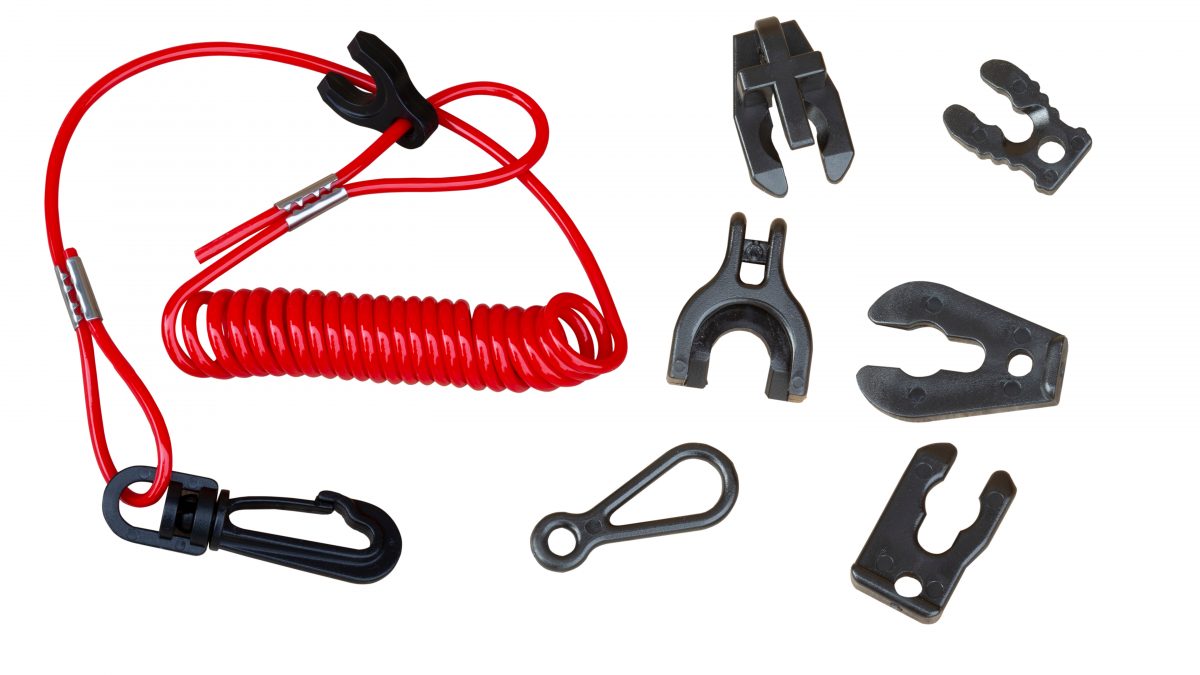What Michigan Boaters Should Know about the New Boating Kill Switch Law
Summer is the ideal season for Michigan boating enthusiasts to spend time with family and friends enjoying Michigan’s magnificent lakes and waterways. However, when a boating accident occurs, the most beautiful day can turn deadly. And, the majority of boating fatalities happen when a boater drowns after being thrown overboard. A new boating kill switch enacted this year may help reduce the risk of serious injury or death in these perilous situations.
What is a Boating Kill Switch (ECOS)?
An emergency engine cut-off switch (ECOS), commonly known as a boating kill switch, is a device that shuts off the engine when the operator falls overboard or is thrust away from the helm. In order to work properly, a lanyard or cord connects the engine switch to the operator’s wrist or personal flotation device (PFD). When the operator is pulled away from the helm, the device detaches from the switch, shutting the engine off immediately and automatically.
This is a significant safety feature because it eliminates the danger of an overboard boater being hit by a moving propeller. According to the U.S. Coast Guard, a typical three-blade propeller running at 3,200 rpm can potentially inflict 160 impacts in one second.
In addition, many boaters drown after their boat speeds away and leaves them stranded in deep water. This situation is most likely to happen when no one else is on board to turn the boat around or call for help. An ECOS prevents the boat from moving so the operator has a better chance of safely re-boarding the vessel.
Recommended reading: The Top 10 Causes of Fatal Boating Accidents
What are the Requirements of the New Boating Kill Switch Law?
Section 8316 of the National Defense Authorization Act of 2021, which became effective April 1, 2021, is a federal law that applies to all navigable waterways. The law requires operators of all recreational vessels less than 26 feet in length with engine capacity of 115 pounds of static thrust (3 hp) or greater to use ECOS devices.
Although some states have their own ECOS regulations, the new federal law takes precedence over existing state regulations. Furthermore, because states cannot implement federal laws, the U.S. Coast Guard will be the primary enforcer. Boat operators who fail to use an approved ECOS device may face fines of up to $100 for a first offense. Details on the law can be found on the U.S. Coast Guard website.
Recommended reading: These 10 Boating Safety Tips Can Help Prevent a Serious Accident
Are There Exceptions to the ECOS Link (Kill Switch) Requirement?
Yes. ECOS links, or kill switches, are not required in the following situations:
- On boats with engine capacity less than 115 pounds of static thrust (3 hp)
- Vessels with the main helm located in an enclosed cabin
- Docking and other low-speed activities
- Launching and loading a boat onto a trailer
- Trolling and operating a vessel in no-wake zones
Let Our Experienced Boating Accident Lawyers Start Your Case Today
Even the most cautious boater can be involved in an accident. If you or a loved one is injured in a boating collision, call us right away. Our experienced legal team is ready to help you win the compensation you and your family deserve.
Boating accident law is complicated, but finding the right boating accident lawyer is simple.
Don’t let the legal clock run out. Get started today by filling out the brief form below or calling 1-800-CALL-SAM for a free, no-obligation remote consultation from the safety of your home.
HAVE YOU BEEN INJURED?
Get The Bernstein Advantage® today!
Free. Simple. Quick.


